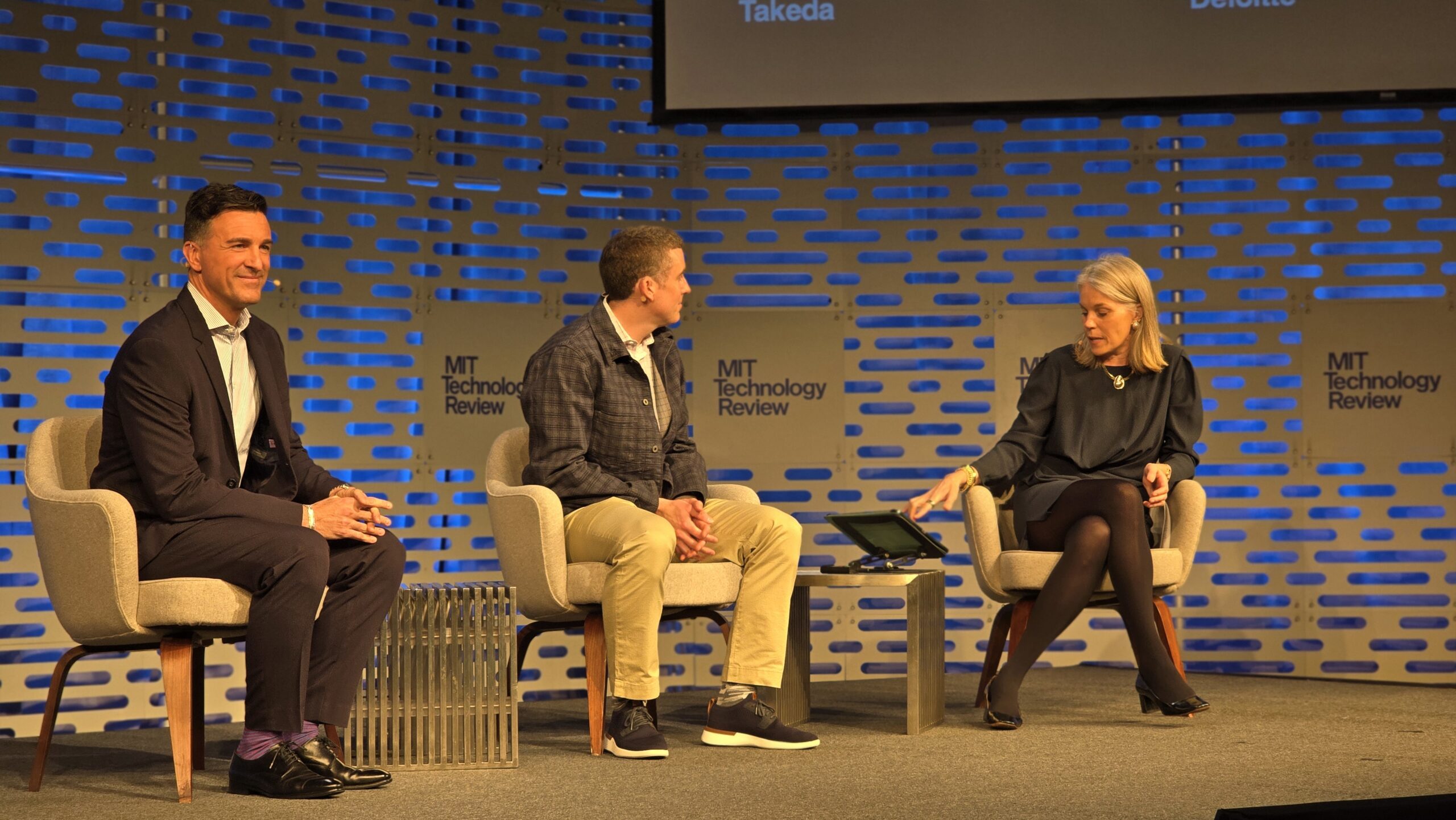Cambridge, MA – MIT EmTechAI: Jim Rowan, Head of AI at Deloitte, and Gabriele Ricci, Chief Data & Technology Officer at Takeda, shared a candid, practical look at how AI is reshaping organizations-from global consulting giants to leading pharmaceutical companies. Their discussion focused on building digital dexterity, managing change, and maximizing value while balancing innovation with governance.
AI as a Catalyst for Organizational Transformation
- Deloitte’s Perspective: Jim Rowan described his role as threefold: helping clients navigate the fast-evolving AI landscape, driving internal AI transformation for Deloitte’s 160,000 knowledge workers, and leading innovation to future-proof the firm. He noted that AI is disrupting traditional workflows and demands a nuanced understanding of both technology and business ecosystems.
- Takeda’s Ambition: Gabriele Ricci emphasized Takeda’s dual pipeline-scientific and digital-to accelerate the delivery of better medicines. In a volatile, highly regulated industry, digital transformation is not just about efficiency but about building a resilient, future-ready organization.
Building Digital Dexterity at Scale
- Defining Digital Dexterity: For Takeda, digital dexterity means equipping employees at all levels with the curiosity, ambition, and skills to embrace and leverage new technologies. This is not just about learning tools, but fostering a culture of continuous learning, experimentation, and collaboration.
- Practical Implementation: Over 35,000 Takeda employees have participated in digital learning programs, using a mix of online platforms, in-person labs, and collaborative spaces. These initiatives extend from executives to manufacturing floors, aiming to create a unified digital mindset across the company.
Hands-On Adoption and the Power of Experimentation
- Agent-Based AI: Both leaders stressed the importance of hands-on experience. Takeda’s employees are actively building and deploying AI agents-akin to digital interns-across the organization, gradually increasing trust and responsibility as the technology matures.
- Iterative Development: Rowan advocated for rapid, iterative deployment of AI solutions rather than lengthy, perfectionist cycles. The technology is evolving so quickly that organizations must build, test, and learn in short bursts to stay relevant.
Change Management and Upskilling for the AI Era
- Curiosity-Driven Culture: Successful change management requires creating safe spaces for experimentation and learning, empowering employees to explore and innovate without fear of failure.
- Personalized Training: Takeda employs a “belt” system (yellow, blue, black) and persona-based training to ensure relevance for different roles-from lab scientists to shop floor operators. This tailored approach accelerates adoption and maximizes impact.
Balancing Innovation with Governance and Ethics
- Responsible AI: Ricci highlighted Takeda’s dedicated Digital Ethics and Compliance team, which embeds ethical principles, regulatory compliance, and data privacy into every stage of AI development and deployment. This is crucial in a sector operating across 80 countries with strict regulations.
- Frameworks for Trust: Both organizations have developed robust frameworks to ensure AI systems are transparent, accountable, and fair, with continuous oversight to mitigate bias and protect sensitive data.
Measuring Success: Beyond ROI
- Efficiency and Speed: Traditional metrics like time saved and ROI remain important, but both Rowan and Ricci emphasized the need to measure qualitative outcomes-such as the number of AI agents built, the speed of innovation cycles, and the cultural shift towards digital fluency.
- Value Framework: Takeda uses a three-pronged value framework: cost efficiency, speed (faster delivery of medicines), and improved quality. Investments are prioritized based on their impact across these dimensions, with clear metrics at each stage from pilot to scale.
Prioritizing AI Investments
- Strategic Alignment: Both speakers stressed the importance of aligning AI initiatives with core business priorities and value creation. A formal governance board at Takeda ensures resources are focused where they can deliver the greatest benefit-whether that’s operational efficiency or accelerating R&D pipelines.
- Overcoming Inertia: Rowan cautioned against organizational inertia, urging companies not to wait for perfect conditions but to infuse AI into existing programs and build organizational “muscle” for future use cases.
What Surprised the Leaders Most?
- Grassroots Adoption: Ricci was struck by the organic, bottom-up enthusiasm for AI across Takeda, from top management to frontline staff. This curiosity and willingness to self-train are driving a seismic cultural shift.
- Rapid Platforming: The speed at which AI tools have become embedded in daily workflows-often without heavy promotion-has exceeded expectations.
Final Advice for Organizations
- Start Where You Can Make an Impact: Focus on the heart of your business, but don’t wait for grand, transformative projects. Quick, iterative wins across the organization build momentum and capability.
- Embrace Experimentation: Foster a culture where employees can play, learn, and innovate with AI in real time.
- Balance Risk and Innovation: Invest in robust governance, but don’t let caution stifle progress. Responsible, ethical AI is a foundation for trust and long-term value.
In summary, the real impact of AI on organizations is not just technological-it’s cultural, strategic, and deeply human. Success hinges on curiosity, agility, ethical stewardship, and the courage to experiment and learn at every level of the business.
For more information, please visit the following:
Website: https://www.josephraczynski.com/
Blog: https://JTConsultingMedia.com/
Podcast: https://techsnippetstoday.buzzsprout.com
LinkedIn: https://www.linkedin.com/in/joerazz/


Leave a Reply
You must be logged in to post a comment.